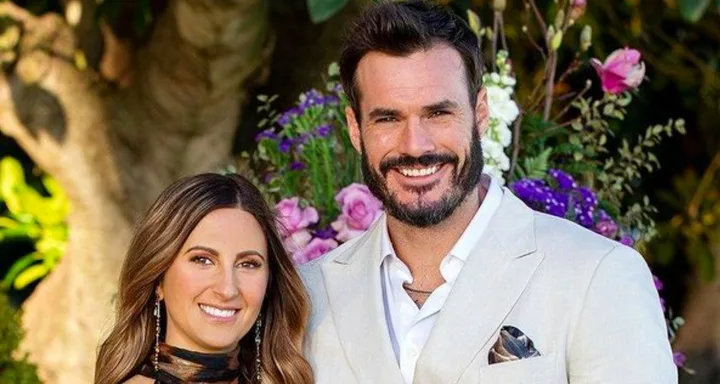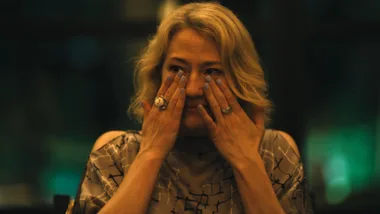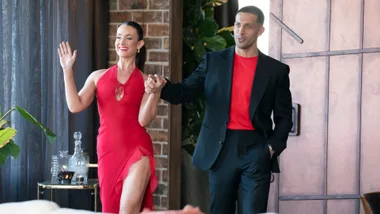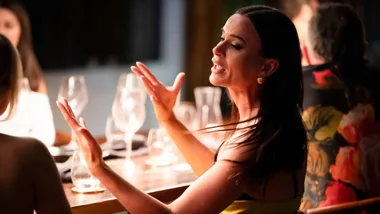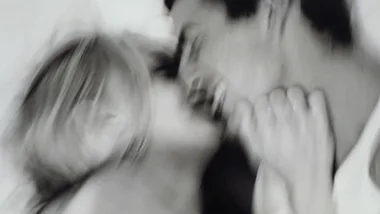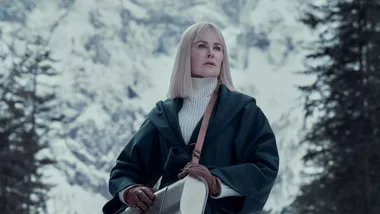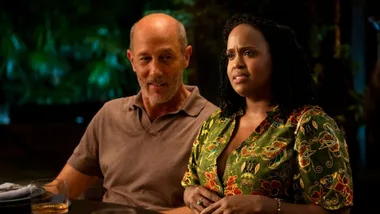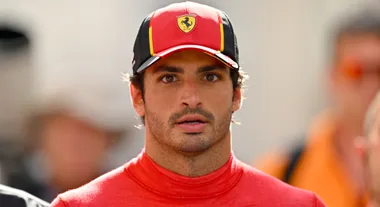Despite its countless seasons and endless spin-offs, there’s something about The Bachelor that keeps romantics swooning long after the final rose.
And while we all enjoy the perfectly planned dates and red rose-ridden ceremonies brimming with glimmering cocktail dresses, the one question we all tend to ask both during and after a whirlwind series is: how on earth do contestants fall in love in just a few weeks? As it turns out, there’s a very real reason behind it.
According to neuroscientist Dr. Kristen Willeumier, there’s a perfectly rational explanation to the sudden infatuation that occurs between the 20-odd contestants and the Bachelor/Bachelorette.
“The Bachelor is the wildest ‘honeymoon phase’ you can get,” Dr. Willeumier tells HelloGiggles. “When you’re on the show, it’s a charged, highly emotional, intense, and surreal environment.”
And while we let that sink in, her in-depth explanation of how the on-screen love comes to be makes oh-so-much sense. After all, once each contestant steps inside the Bachelor mansion, they are prey to an impressive psychological experiment having been completely cut off from any communication to the outside world—no phone, TV, internet or music.
In another interview with Hello Giggles, former U.S. Bachelorette Rachel Lindsay opened up about what it felt like to be locked out from society for the duration of the show, saying:
“You’re shut off from the rest of the world and outside distractions, so all you can do is focus on what you really want.”
She continued, “It’s just you and your feelings, and you’re talking about them all day. It’s like this is the only man or woman in the entire world, the producers are your parents, and the girls are your only friends,”
“If you have an actual connection with the lead, it takes things to another level because at first, you’re sceptical, and then you’re like ‘Oh my gosh, they gave me a group date rose,’ ‘they looked at me this way,’ and you realise ‘this can be real,’ and you start believing it.”
Of course, the influx of romance isn’t solely due to their living arrangements. As we know, Bachelor dates are elaborately planned and excessively romantic—from mountain climbing to fencing to candlelit dinners—you name it, they do it.
And thanks to those over-the-top activities—that wouldn’t necessarily happen in the real world—the enticing atmosphere also offers contestants’ rose-tinted glasses (no pun intended), messing with their desires and emotions.
“It’s science: studies find that adrenaline rushes can help spark sexual attraction,” Dr. Willeumier explains.
Naturally, the rush of endorphins aren’t simply a result of one too many moonlit kisses under the stars, the brain plays a rather vital part in the entire process, with neurochemicals in directly impacting how their emotions play out.
“When the lead begins his journey on The Bachelor, he is initially in the attraction phase of love, with a surge of testosterone driving the more physical aspects of love,” she reveals.
“There’s also the release of dopamine in the pleasure centres of his brain. These neurochemicals provide the energy, focused attention, excitement, hope, motivation, goal-directed behaviour, craving, and longing that drives the early stages of love and gives him the stamina required to court the ladies.”
“Other neurochemicals related to stress and excitement (like norepinephrine and cortisol) are also released, while some of the more calming neurotransmitters (like serotonin) are lower.”
And while we continue to profess how the heart wants what it wants, it’s important to note that the process of falling in love isn’t as simple as going from A to B. In fact, it happens in three stages: lust, attraction and attachment.
It’s in the attachment phase where couples can build a bond with one another and, you guessed it, confess their love for each other—which in Bachelor universe, traditionally takes place in the season finale.
Not ones to claim that love is a lie, there is also an incredibly logical reason as to why most reality TV relationships end up fizzling out post-show.
“On the show, you’re away from work and you’re going on all of these wild dates, but what is your real world scenario?” she suggests. “What do you and your new fiancé do individually on the weekends? What are you both like at home after work? After the show, you’re back in the real world. How compatible are you, truly?”
Given that off-screen romances often fall prey to the perils of real life challenges, who’s to say that can’t happen to those who find love in less traditional ways?
So remember, this year, while we sceptically watch The Bachelor—who we’re expecting to be another mildly famous face—there’s some significant science to consider.
